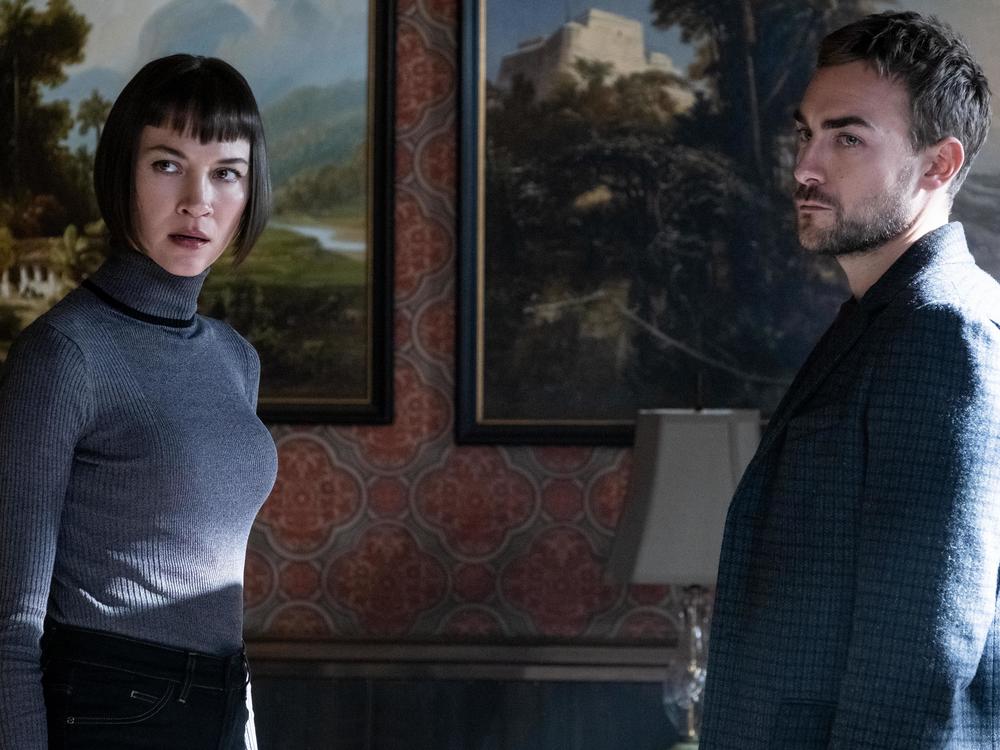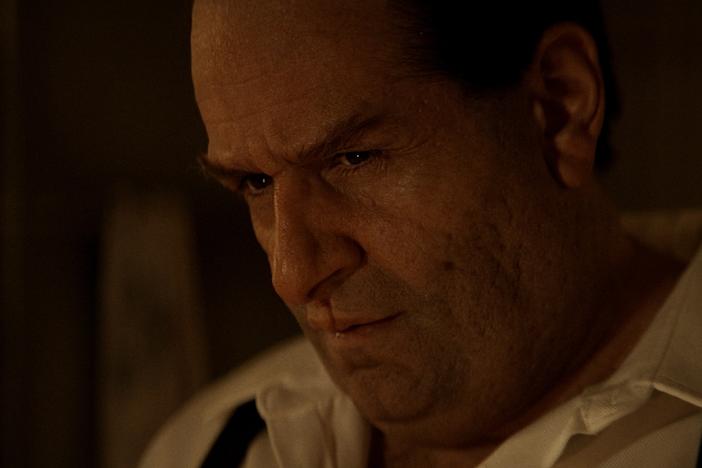Section Branding
Header Content
Damned If You Do: Hulu's Less-Than-Marvelous 'Helstrom'
Primary Content
As you consider whether you should invest in Hulu's Helstrom, which features a pair of squabbling sibling demon-hunters from the pages of Marvel Comics, you should know that the series has already been condemned.
Not to Hell, exactly, but to Limbo — the 10-episode first season, which drops Friday on Hulu, is destined to be its last. It was originally developed by Marvel Television to offer a peek into an occult corner of the Marvel Universe — albeit one that's a good deal more heavy-metal than Doctor Strange's is, even if its denizens boast much lower Q-Ratings. Dubbed the "Adventure into Fear" franchise, the plan was to produce several related series featuring occult characters like Ghost Rider and Daimon Hellstrom — note, please, that unlike the Hulu series, the Marvel Comics version proudly sports two "L"s in his last name, as 1970s comics were no place for coy dissembling. This is underscored by the fact that Daimon Hellstrom went by the nom de hero The Son of Satan, while his sister's name was Satana. So, yeah: Unsubtle, call it.
In the comics, the identity of Daimon and Satana's father has churned through a few reboots and retcons, but you and I don't need to get into all that, when you could find a perfectly good wiki to walk you through them all, should the desire seize you.
What's important to the matter at hand is that plans for the "Adventure into Fear" franchise fizzled once when (originally separate) Marvel Television got folded into Marvel Studios last year. But Helstrom was already in post-production, so the execs let showrunner Paul Zbyszewski finish it up, even as they cancelled their contract with him, citing the pandemic. There are many signs and portents that the folks in charge of the family-friendly Marvel Cinematic Universe remain uncomfortable with a show as rife with demonic possession and blood-rituals as this one: Its title shift from Marvel's Helstrom to Helstrom, the lack of the Marvel logo in the credit sequence, and, most notably, the complete absence of references to any other Marvel property.
The show seems to take place in a dark, rainy, Vancouver-doubling-as-Portland bubble-universe in which the only vaguely Marvel-adjacent presences you can point to are a fictional energy company that's appeared in the comics since 1975 (and the MCU movies since 2008) — oh, and the great character actress Elizabeth Marvel, who plays Victoria, our hero's institutionalized mother.
What Helstrom has going for it are its performances like Elizabeth Marvel's — idiosyncratic, fully present and specific — and its style for days, at least in the early going. When Ana Helstrom (Sydney Lemmon) first saunters onscreen in a severe black bob, sleek white pantsuit and towering white heels, we know she's in complete command, even before she stars tossing off archly withering quips. (If her presentation and characterization are meant to function as a sop to queer viewers disappointed that her brother Daimon (Tom Austen) isn't sporting his O.G. comics outfit here — trident, flamboyantly crimson cape and tights, and a bare muscular chest emblazoned with a flaming pentagram — then it serves its purpose, but only just.)
Lemmon gets the best lines and wardrobe, while Austen is forced to make do with snarking at a Vatican observer (Arianna Guerra, in an underwritten part) while sporting a basic black suit. Lemmon and Austen display effective chemistry whenever the series pushes their bickering sibling rivalry to the fore, and Lemmon's also great in the (too-)few scenes she gets with her business partner, the funny, equally acerbic Chris (a very good Alain Uy).
The problem is the sheer multifarious abundance of supporting characters like Chris, and the fact that every last one gets to trot out their own subplots and backstories. In addition to Guerra's skeptical nun, Marvel's troubled Victoria and Uy's laconic Chris, we also get to know June Carryl's maternal head of the psychiatric hospital, who's harboring her own secret, and Robert Wisdom's mysterious Caretaker, who's not-so-secretly connected to ... pretty much the entire cast.
In the first five episodes made available to press, a general lack of focus prevails, as those plot threads and others keep piling up and unspooling without intersecting. There's also a distinct hesitancy in the staging of much of the action, whether it's a fight scene taking place in a darkened warehouse or an awkwardly executed and weirdly unhurried escape from a burning basement.
It seems unlikely that there's enough time in the season's back half for all of these characters, or even the lion's share of them, to arrive at satisfying resolutions. What is certain, however, is that if they don't, no subsequent seasons await them to try again.
In an age of streaming abundance, teeming with series old and new that present us with hours and hours of stories to lose ourselves within, Helstrom's unique circumstance as an abandoned, one-off, sort-of-stylized, sort-of-Marvel property that rides the line between spooky and hokey like it was born to it, will appeal to some viewers. I'll confess, despite its shortcomings, it did to me; I'll be checking out those last five episodes this weekend, as much for the performances of Lemmon and Uy as for the prospect — howsoever dim — of Daimon's flaming chest pentgram putting in a last-minute cameo.
Copyright 2020 NPR. To see more, visit https://www.npr.org.
Bottom Content



